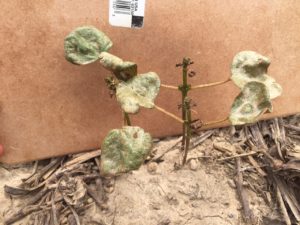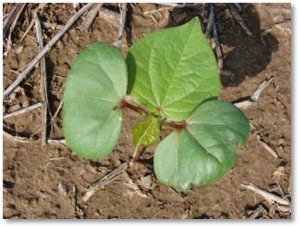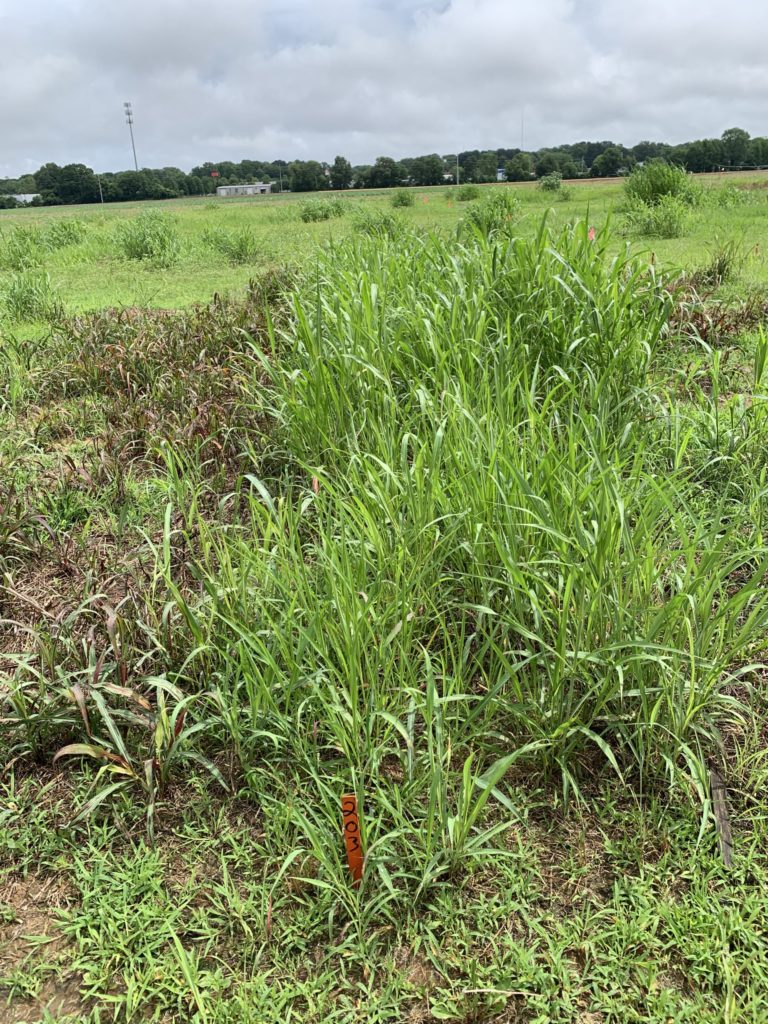Farmers facing heavy thrips infestation and the late-breaking news that the U.S. Court of Appeals for the 9th Circuit has vacated registrations for three dicamba herbicides. It’s all covered in this podcast.
Recent Updates
Cotton Insect Update … Thrips Be Rolling

It’s been a challenge getting our crops in the ground, and our planting dates are really stretched out. It is especially important that our late planted cotton gets off to a good start to make up for a little lost time. Unfortunately, the ‘Thrips Infestation Predictor for Cotton’ (https://climate.ncsu.edu/cottonTIP) appears to be dead on in predicting our heaviest thrips pressure will occur in early June, just as our later planted cotton is most susceptible. I’d suggest making an insecticide application to Continue reading
Call of the Week: Chemical Burn on Cotton
In this podcast, Dr. Larry Steckel’s top call for this week has been assessing chemical injury to young cotton plants. That’s thanks to weather and soil conditions when many post-emergence herbicide applications were made. Dr. Steckel will discuss what to do next and how to mitigate chemical burn going forward. He’ll also discuss glyphosate-resistant johnsongrass. Listen.
Recording of UT Cotton School (Zoom Training)
 Below please find a link to the recorded zoom training for the 2020 UT Cotton Scout School. It is a rather lengthy training, but you can fast forward and rewind at your discretion.
Below please find a link to the recorded zoom training for the 2020 UT Cotton Scout School. It is a rather lengthy training, but you can fast forward and rewind at your discretion.
http://www.utcrops.com/BlogStuff/2020-UT_CottonScoutSchool.mp4
2020 Top Bean Soybean Yield Contest Details
The Tennessee Soybean Association and Promotion Board will once again sponsor the ‘Top Bean’ soybean yield contest in 2020. Continue reading
Basics of the CFAP Direct Payments for Corn, Soybean, and Cotton
Posted for Dr. Aaron Smith, Associate Professor and Extension Economist, Department of Agricultural and Resource Economics, University of Tennessee Institute of Agriculture
The USDA has started accepting applications for CFAP payments to producers that have been adversely affected by the COVID-19 pandemic. Continue reading
Soybeans: Planting, Replanting and Supplementing Weak Stands
Currently, less than half of our soybean acres are planted, and as growers make the switch to beans, too much rain and warm temperatures are causing a few headaches with respect to getting fields planted and maintaining a good stand. Continue reading
Options to Manage Glyphosate-Resistant Johsongrass in Corn

Glyphosate is no longer an effective Johnsongrass herbicide in Shelby and Tipton counties. This problem appears to have spread, as field observations as well as follow-up research over the past 2 years would indicate that glyphosate is no longer effective on Johnsongrass in a few fields in Crockett, Fayette, Madison, Haywood and Lauderdale counties. Only the counties near the Kentucky line seem to be getting adequate control of Johnsongrass with glyphosate in most every field. Continue reading

